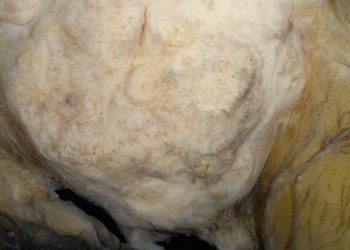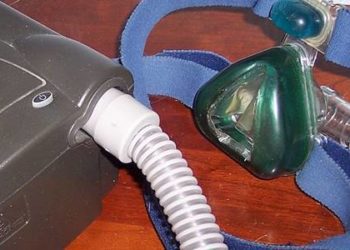Annual MRI aids breast cancer screening in high-risk patients
1. The combination of an annual MRI and mammography in women at high risk for breast cancer demonstrated a high breast cancer detection rate.
2. The positive predictive value was higher for cancer detection by both MRI and mammography compared to MRI alone.
Evidence Rating Level: 2 (Good)
Study Rundown: Though only a small fraction of breast cancer cases are thought to be secondary to inherited predispositions, carriers of mutations such as BRCA1/2 are at a significantly increased risk for breast cancer. While preventive options such as mastectomy, salpingo-oophorectomy or chemoprophylaxis exist, rigorous radiological screening for cancer is required for women who decline these options. Previous studies have suggested that MRI in addition to mammography may fulfill this role. The purpose of this study was to evaluate the results of MRI use in the Ontario Breast Screening Program for high risk women.
The authors found that the implementation of MRI into this program’s screening successfully increased the cancer detection rate. In this particular cohort of 35 patients, no cancers were found in women positive on mammogram alone, while the positive predictive value was highest for women positive on both mammography and MRI. Based on these findings, the authors suggest that annual MRI with mammography can be successfully used to screen high-risk women. However, it should be noted that radiologists in this study were not blinded to mammogram results when reading the MRIs. Furthermore, this was a strictly observational study.
Click to read the study in JCO
In-Depth [prospective cohort]: This study drew its data from the Ontario Breast Screening Program (OBSP), which screens high-risk women with annual MRI screening in addition to mammography. High risk criteria included known mutation in BRCA1/2 or other genes associated with high risk of breast cancer, untested first degree relatives of gene mutation carriers, family history consistent with a breast cancer syndrome, and estimated lifetime breast cancer risk >25%, and chest radiation exposure before age 30 years. A total of 2207 women who had undergone either MRI (or ultrasound) alone or MRI as well as mammography were analyzed, including those with prior history of breast cancer or other cancers, breast implants, unilateral mastectomy or other breast surgery. The primary outcome was screen-detected breast cancer. Other outcomes measured included recall rate (percentage of women referred for further testing due to an abnormal result). The authors found that the recall rate was significantly higher for abnormal MRI alone (15.1%; 95% CI 13.8% to 16.4%) compared to mammogram alone (6.4%; 95% CI, 5.5% to 7.3%). A total of 35 breast cancers were detected, none by mammogram alone, and 23 by MRI alone. The positive predictive value was highest for positive results on both mammogram and MRI (12.4%; 95% CI, 7.3% to 19.3%).
More from this author: Rituximab linked with reduced chronic immune disease following stem cell transplantation, High-dose prophylaxis for hemophilia increases costs with minimal benefit, Ambrisentan found ineffective against idiopathic pulmonary fibrosis
Image: PD
©2012-2014 2minutemedicine.com. All rights reserved. No works may be reproduced without expressed written consent from 2minutemedicine.com. Disclaimer: We present factual information directly from peer reviewed medical journals. No post should be construed as medical advice and is not intended as such by the authors, editors, staff or by 2minutemedicine.com. PLEASE SEE A HEALTHCARE PROVIDER IN YOUR AREA IF YOU SEEK MEDICAL ADVICE OF ANY SORT.





![Childhood ADHD associated with increased risk of suicide [Physician Comment]](https://www.2minutemedicine.com/wp-content/uploads/2013/03/PET-image1-e1377449984183-75x75.jpg)



